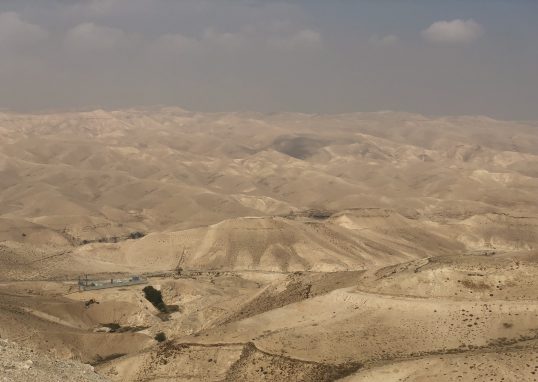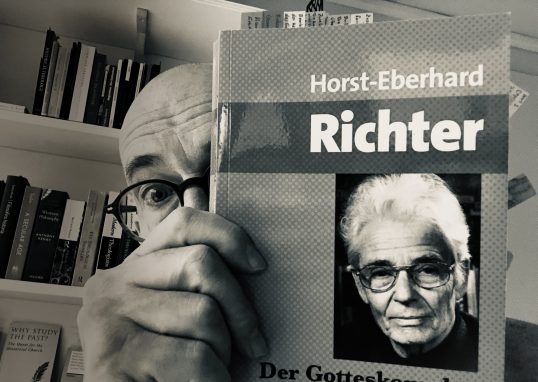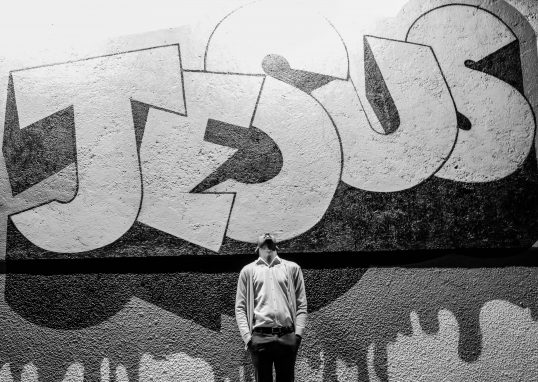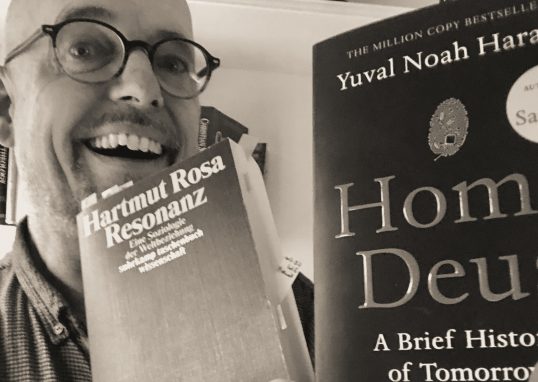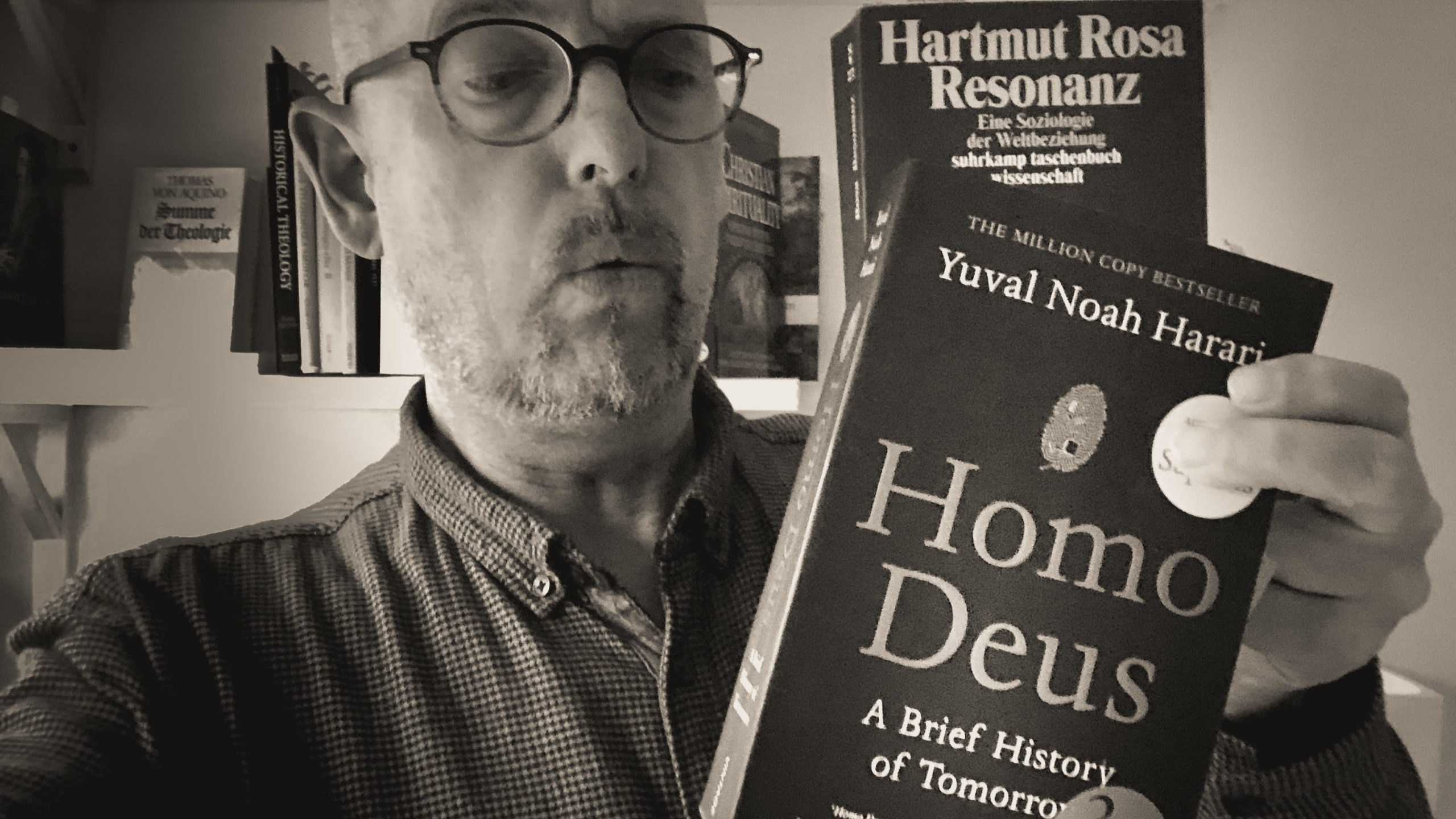
Annual review, outlook for the year ahead, analyses. Words of the year. Legislative changes. Year in, year out. Is everything really getting worse, more expensive, more complicated, murkier? Christians would add: ‘More sinful’? I would say no, it is not inevitably so. We have only trapped ourselves. Like a dog with a fat bone in its mouth, it sees its reflection in the lake and, in its greed, loses what it already has. We have always had the problem of admitting our problem.
It’s funny how things happen sometimes. Independently of each other, three books by completely different authors found their way to my table. None of them are particularly religious, but they all deal in their own way with the deification of man – and the excessive demands that go with it. At the same time as Richter’s God Complex, I was also reading Yuval Noah Harari’s Homo Deus: A Brief History of Tomorrow and Hartmut Rosa’s Resonance: A Sociology of World Relations.
In Harari’s work, only the first part of the title is really still interesting: Homo Deus, Man-God. And, of course, the way he writes, a mixture of good historical knowledge, interesting observations and entertaining phrases. Otherwise, the book is clearly a product of 2015, pre-Trump, pre-Brexit, pre-pandemic. Back when most of us still lived in blissful ignorance, unaware of all the things that could go wrong in the near future in our doll’s house of chic living. When the biggest problem on the news was those pesky boats in the Mediterranean. When we didn’t yet know how much dynamite could be in face masks. So Harari could still confidently celebrate the fall of the Soviet Union, even with a photo of the historic signing of the treaty, and confidently assert that there will be no more wars in the future because there will simply be no need for them. Yes, exactly. I think he realised that later himself.
Still, it is worth noting how much Harari believes in human ingenuity. His future is a technological one. So much so that it goes as far as transhumanism. Even death can be conquered through science and research, he says. But all this will not make the society of the future more human. On the contrary, there is a danger that the human god will lose control over his creations. Still, I find Harari’s descriptions of the year 2015 reminiscent of the equally unworldly optimism of the late 19th century. Back then, people also thought they were invincible. Electricity, X-rays, all these scientific discoveries, divine! Cameras, cars, all these new inventions, exhilarating! Until the rude awakening of 1914. Today, on the penultimate day of 2024, we still don’t know for sure if World War III has already begun. It can’t be ruled out. History will tell us later. This time we wouldn’t even need a third world war to wake us up from our deluded dreams of even fatter bones. For even without war, we continue to feed the dragon, which has long since reached sexual maturity. Even in peace, it spits out more and more thunderous fire. Its name: the defilement of creation.
But we are no longer Siegfrieds who venture into the dragon’s den, death-defying and certain of victory, only to bathe in its blood later. No one has such a battle in their contract anymore. Unlike Siegfried, these days you first have to talk to your therapist about whether your nerves can handle going into the cave at all, or whether you shouldn’t just chill out. This is exactly what Hartmut Rosa writes about: the human soul, completely crushed by the mechanisms of late modernity, whose level of heroism is sometimes exceeded by getting up in the morning. We feel constantly overwhelmed and therefore believe that everything is getting worse and worse.
For decades, our own technologies have been exploiting us more and more. We are developing faster and faster technology, and as a result our whole lives are speeding up. Computers are becoming more and more powerful, so the pressure on us to perform is increasing. We feel more and more instrumentalised, more and more controlled. And because the curve of technological development seems to be exponential, at some point we can no longer keep up. The rug is being pulled out from under us. Rosa uses images that are like our feet, with which we literally stand in life. They are the constant point of contact with the world we live in – yet we feel more and more alienated. We no longer feel connected to this world and experience loneliness and meaninglessness. This is the modern attitude to life. The more people experience this, the weaker society becomes.
Hartmut Rosa’s book Resonance: A Sociology of World Relationship examines how modern people experience their relationship to the world. Rosa argues that our lives are increasingly characterised by acceleration, pressure to perform and instrumental control, leading to alienation. In contrast, he introduces the concept of resonance – a state in which people feel a vibrant, reciprocal connection to the world.
He describes resonance as a fundamental dimension of human existence that can be experienced in social relationships, experiences of nature, art or religion. Resonance is created through openness, mutual response and the feeling of being touched, rather than simply controlling or instrumentalising the world. Rosa shows how modern social structures destroy spaces of resonance and calls for these spaces to be consciously protected and nurtured.
Combining sociological analysis with philosophical and psychological insights, the book offers an alternative to the alienating tendencies of late modernity. Personally, I think that church should be a place of resonance. Not only because of singing, although Rosa presents choral singing as something particularly valuable because it is precisely there that resonance is experienced in musical harmony with one’s fellow human beings. A congregation is community, and those who are alone are lost. Congregation is love, congregation is meaning, congregation is divine. Congregation is real, it is as simple as water, but just as refreshing, invigorating, cleansing. Here you can be yourself, here you can plunge into the mystery of life and experience healing. It is not by chance that baptism is the entrance to the church. The congregation is medicine against death, because it is immortal. The church is the sociology of the relationship with heaven, because it embodies the New Creation, and thus it is the contrast to the relationship with this world, the old creation.
I wish you all such an elated congregational community in 2025. Because without such resonant frequencies, one could succumb to the misconception that everything is getting worse and worse.
